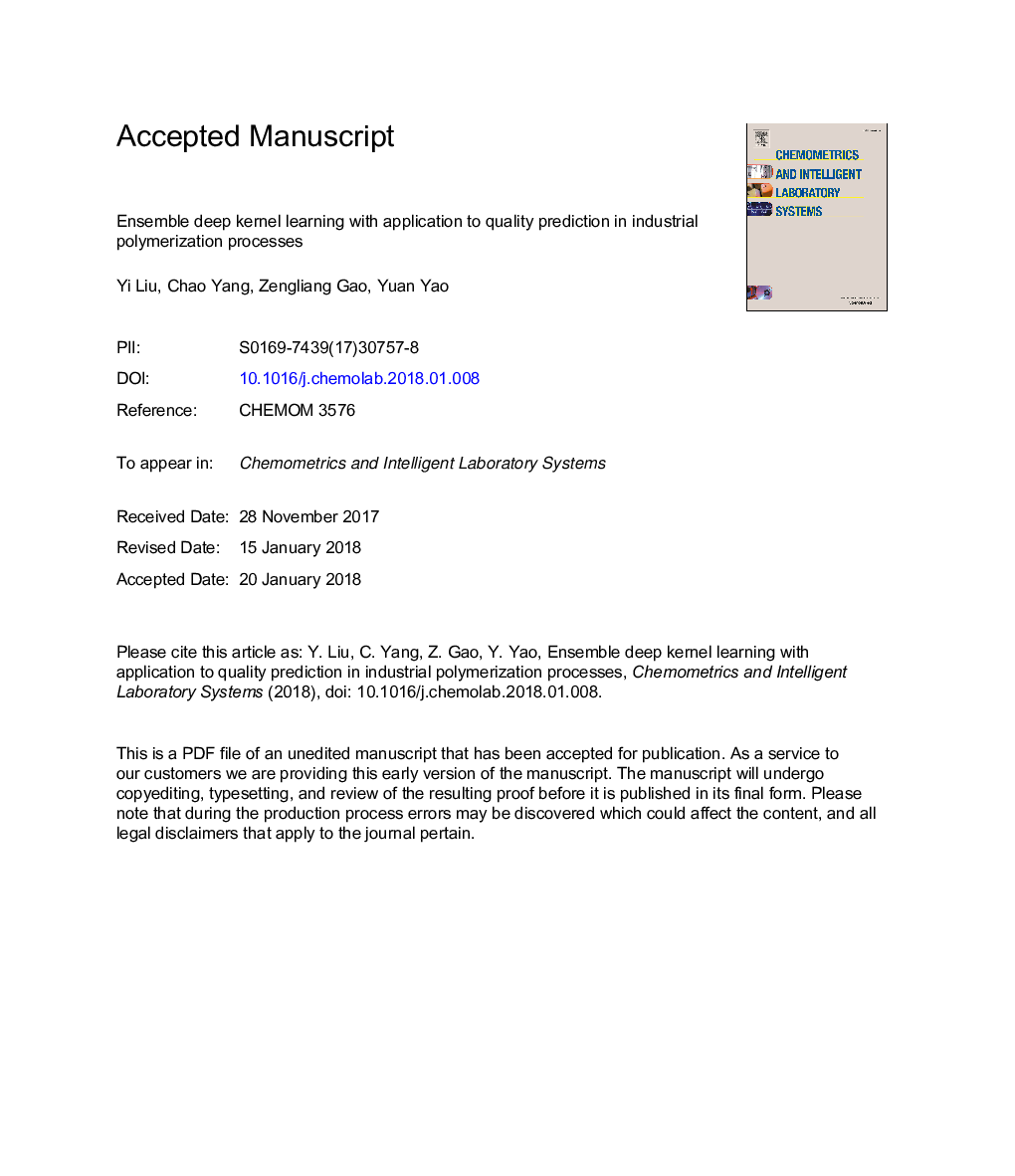| Article ID | Journal | Published Year | Pages | File Type |
|---|---|---|---|---|
| 7562140 | Chemometrics and Intelligent Laboratory Systems | 2018 | 32 Pages |
Abstract
For predicting the melt index (MI) in industrial polymerization processes, traditional data-driven empirical models do not utilize the information in a large amount of the unlabeled data. To overcome this data-rich-but-information-poor (DRIP) problem in polymer industries, an ensemble deep kernel learning (EDKL) model is proposed. With an unsupervised learning stage, the deep brief network is adopted to extract useful information from the available data. Then, a kernel learning regression model is formulated to obtain a nonlinear relationship between the extracted features and MI values. Moreover, a bagging-based ensemble strategy is integrated into the deep kernel learning method to enhance the reliability of the prediction model. The industrial MI prediction results demonstrate the advantages of the developed EDKL model as compared with conventional supervised soft sensors (e.g., partial least squares and support vector regression) that only use the limited labeled data.
Related Topics
Physical Sciences and Engineering
Chemistry
Analytical Chemistry
Authors
Yi Liu, Chao Yang, Zengliang Gao, Yuan Yao,
